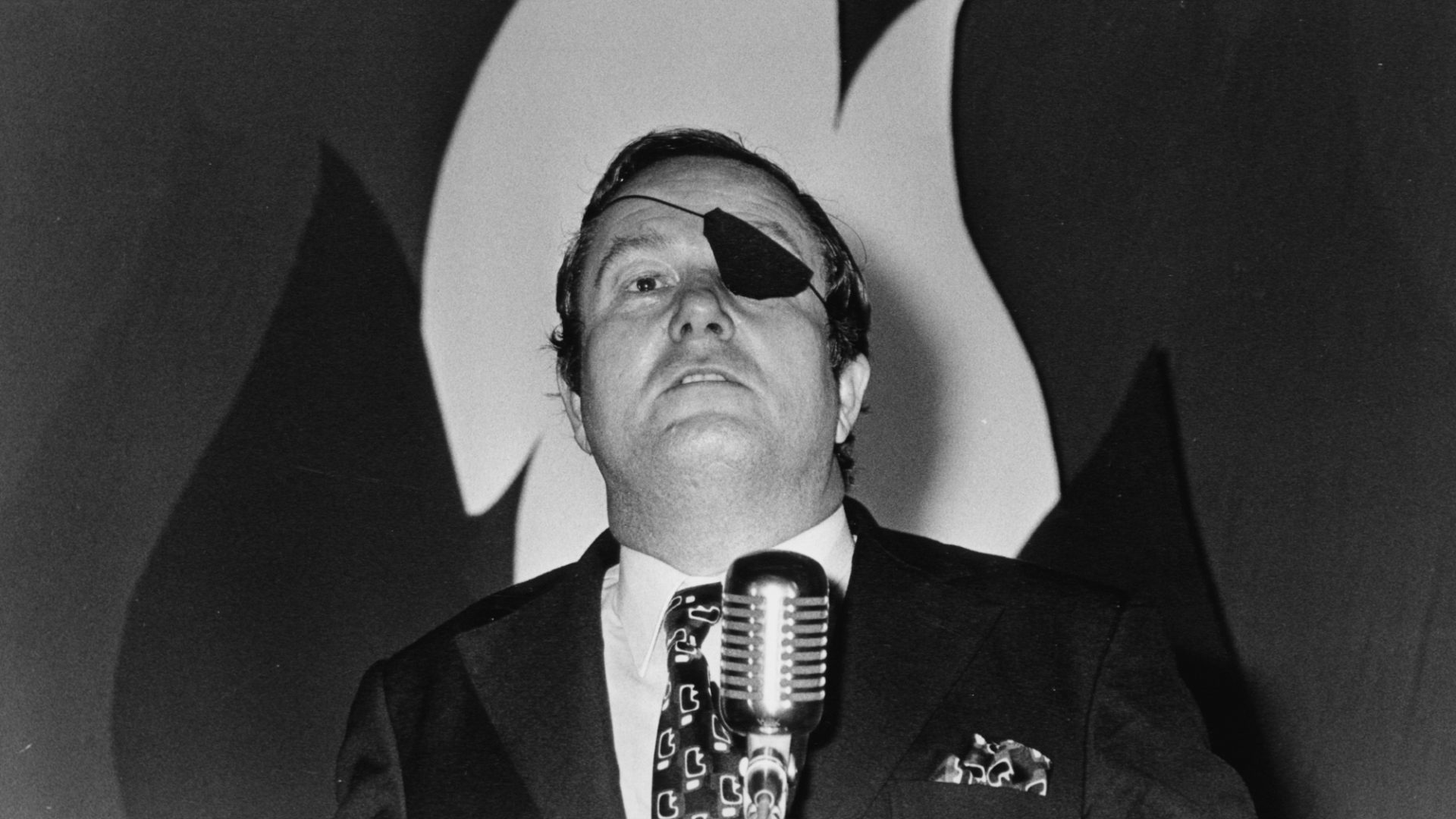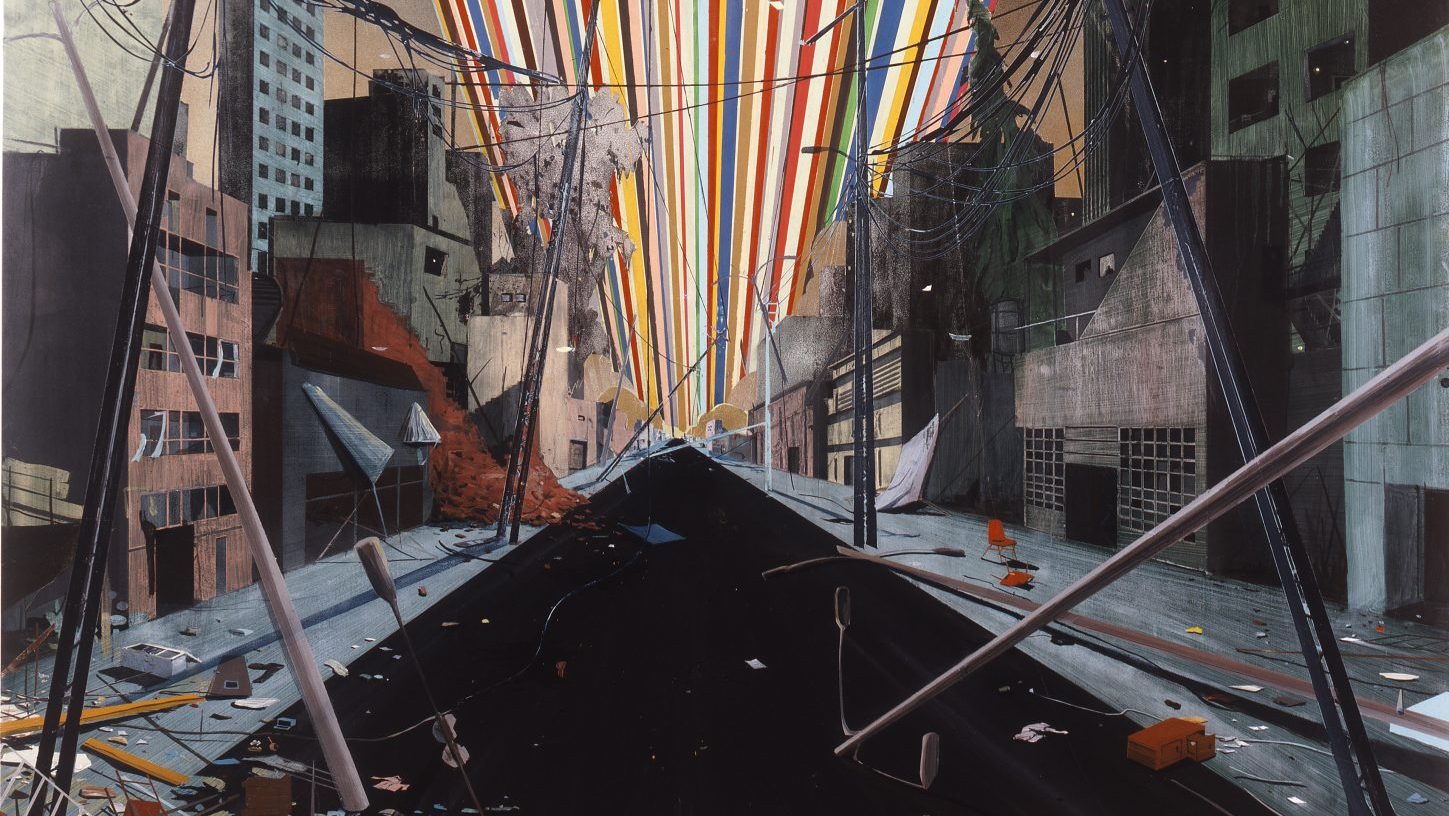There were Gregorian chants, reunions of skinhead Third Reich admirers and anti-Arab utterances. As funeral gatherings go, it was a fitting reflection of the sulphurous life of convicted Holocaust denier Jean-Marie Le Pen in his Brittany village birthplace of La Trinité-sur-Mer.
Black-clad and prepped for the cameras, Le Pen’s fractious but publicly united clan came together on January 11, led by his political heir and daughter Marine Le Pen. The Rassemblement National (formerly Front National) party boss was flanked by her sister, legislator Marie-Caroline. In the second row Marine’s niece and occasional rival, European parliamentarian Marion Maréchal (she dropped the Le Pen name years ago) smiled alongside her far right Italian politician husband. The requiem spectacle was carefully planned, as the Le Pen dynasty assembled to honour the patriarch of the postwar French and European extreme right – and send a clear message that the torch had officially been passed to his descendants.
The ambiance could not have been more different from January 7 when the news of Le Pen’s death was announced. Hundreds took to the streets in Paris and other cities to pop champagne corks in celebration.
Not that the gloating or any other truths were told in the funeral pamphlet or mass, regarding the acts of torture “Papy” (gramps) was accused of during the Franco-Algerian War. Nor the indisputable evidence of his relentless peddling of conspiracies targeting Jews, immigrants, and democratic ideals.
Le Pen was also a Putin propagandist who took Kremlin cash for his Front National (FN), like his daughter Marine, who defeated Bruno Gollnisch in the race to succeed her father in 2011.
Jean-Marie claimed Crimea was “always Russian”, that Ukraine was an “insurrectionist power”, and that the Russia-Ukraine conflict was a “family affair” that France and the west should not get involved in.
He parroted Moscow lies long before Farage, Trump, Musk and Vance. He set the tone and inspired subsequent generations of far right pro-Putin anti-immigrant demagogues, even if on the surface he was seen as too extreme given his overt antisemitic hate speech. As the founder of the extreme right FN in 1972, Le Pen created an electoral machine and profitable political dynasty blending the remnants of Vichy collaborationists, neo-fascists and skinheads, royalists, paganists and Catholic ultra-fundamentalists, disaffected members of the working class, and by the 1990s, extreme left anti-Zionists.
Over more than five decades, this potent political movement has pushed the boundaries of French – and European – political discourse, normalising far right extremism through promoting fear and hate of “the other”.
Le Pen’s notoriety stemmed from his vile rhetoric and unapologetic bigotry. He infamously referred to the Holocaust as a mere “detail” of history, the Nazi occupation as “not that inhumane” and dismissed Nazi gas chambers as a “point of debate.” His antisemitism was persistent and dangerous. In September 2024, he was even filmed at his home singing with a neo-Nazi group.
But Le Pen’s brand of hate was not limited to words. His political rise coincided with accusations of direct involvement in atrocities during the Algerian war. Allegations of torture against him cast a long shadow over his career. Though he denied the charges, they underscored the brutal reality of his ideology: a politics rooted in violence, domination, and the suppression of dissent.
Born the son of a seamstress and a fisherman, Le Pen became France’s youngest MP in 1956, but he remained fixated on the battlefields of Indochina and Algeria. His resentment over France’s diminishing colonial reach fuelled his animosity towards Charles de Gaulle, whom he accused of betraying the French settlers of Algeria.
The early years of the Front National were turbulent, marked by violent confrontations and overt racism, which revived memories of the Vichy regime. In 1976, a bomb exploded in his Paris apartment building, injuring six people but sparing Le Pen and his family. His personal life was equally dramatic – his wife, Pierrette, left him in 1984 and in a provocative response to his patriarchal views she later posed for Playboy.
Le Pen’s antisemitic and racist speech earned him legal penalties and solidified his reputation as the “Devil of the Republic”. He likened Muslims praying in public to a Nazi occupation and made grotesque remarks about gas chambers in reference to Jewish figures.
His slogan, “One million unemployed, one million immigrants too many,” epitomised the xenophobia that defined his career. By the 1980s, François Mitterrand’s cynical decision to amplify Le Pen’s media presence legitimised him. The National Front became a formidable force, capitalising on working-class discontent and exploiting fears about immigration, the European Union and globalisation.
The 2002 presidential election was Le Pen’s crowning achievement. By ousting Socialist candidate Lionel Jospin in the first round, he forced a runoff against Jacques Chirac. Millions of French citizens rallied to block his path to power, giving the Gaullist right candidate Chirac an overwhelming victory.
Yet the damage was done. The shock of Le Pen’s success revealed deep fractures in French society and marked the beginning of the far right’s inexorable creep towards greater power.
Le Pen railed against the EU but profited for decades from its taxpayers as an MEP. His legacy lives on through his daughter Marine, who rebranded the party to broaden its appeal. While Marine has attempted to distance the RN from its overtly racist past, her rhetoric and policies remain grounded in her father’s ideology.
Critics like journalist Caroline Fourest, the editorial director of Franc-Tireur, have noted that Marine’s efforts at de-demonisation are merely a strategic facade. The core of Le Penism – nationalistic, anti-immigrant, scapegoating and enamoured of dictators like Vladimir Putin and Bashar al-Assad – remains intact.
Father and daughter’s uneasy alliance ended dramatically in 2015 when Marine expelled her father from the party after yet another antisemitic outburst. The decision in 2018 to rename the party completed a symbolic break from her father’s toxic legacy.
She has since brought the movement within striking distance of power, advancing to the second round in both the 2017 and 2022 presidential elections, receiving 41.5% against Emmanuel Macron last time. Polling shows her as the favourite to win in 2027.
The timing of Le Pen’s death was a cruel irony. It coincided with the tenth anniversary of the Charlie Hebdo massacre, a moment when France came together to defend free speech and secularism.
Le Pen’s response to that tragedy was as appalling as it was revealing. He mocked the national unity that followed the attacks, deriding the marchers and declaring he was not Charlie – but more “Charlie Martel”, in reference to the eighth-century Frankish Duke Charles Martel who fought off invading Muslims.
He stood against everything that the victims of Charlie represented: courage, creativity, and resistance to extremism – and his impact extended far beyond France. His rise inspired a generation of far-right leaders across Europe, from Hungary’s Viktor Orbán to Italy’s Matteo Salvini.
Le Pen proved that hate could be repackaged as populism, that fear could be weaponised to erode democratic values. His death marks the end of a life dedicated to undermining the principles of liberty, equality, and fraternity.



